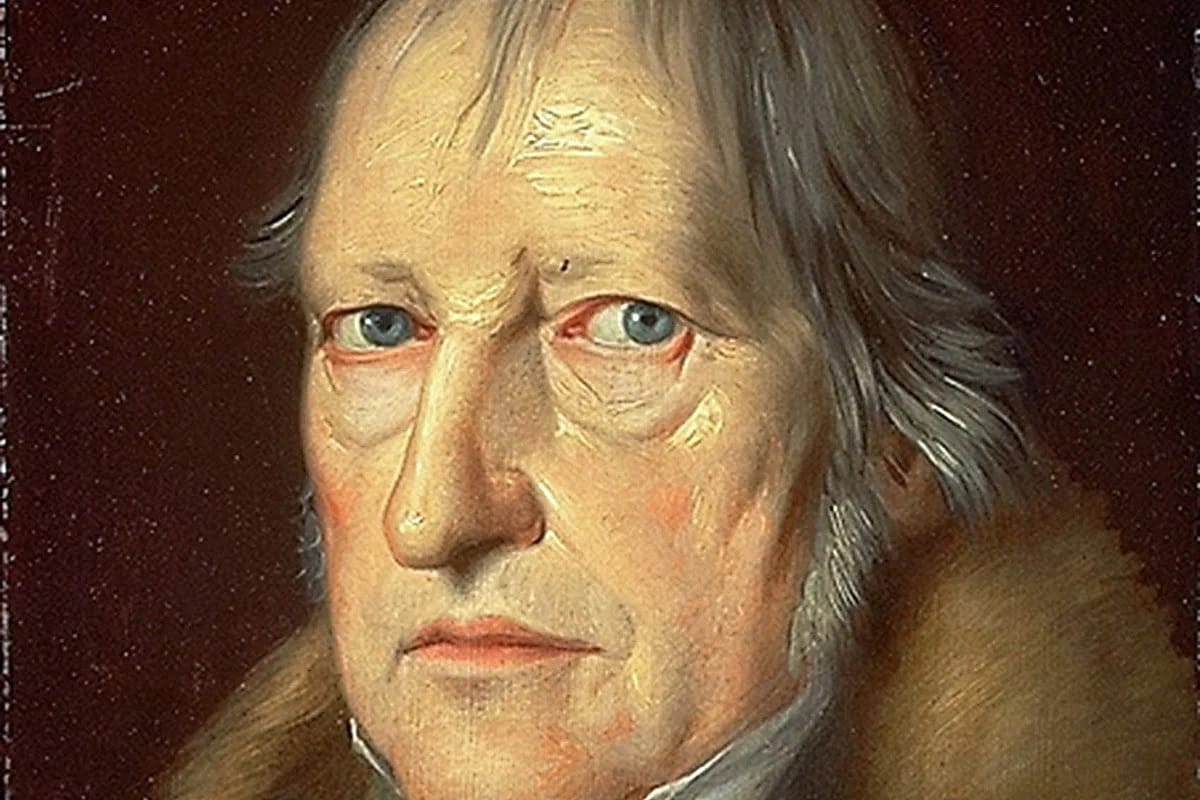A Liberal Case for Natural Law
Is law fundamentally natural or man-made? Are there constraints on possible law beyond whatever governments can enforce with threats of violence? Does rule of law, not men, have any meaning if laws are always enforced and interpreted by men?

Is law fundamentally natural or man-made? Are there constraints on possible law beyond whatever governments can enforce with threats of violence? An answer to this question will determine whether it is meaningful to speak of rule of law, not of men, or whether we can never be anything more than subjects of the whims and desires of others or rulers over them.
We may point out that written legislation which passes into statute and the judgments passed down in the courts are merely the subjective judgments of individuals. As Hegel points out in his Elements of the Philosophy of Right, it appears that right, truth and justice are reduced to merely subjective opinions, rather than objective facts. In the cynicism of youth, that sees no law but opinion and the struggle for power over one another, we conclude law, justice and right are meaningless, and pursue our desires. Each man is led by his subjective opinions of what is good and right, and critics who look upon this clown fest of feelings pursue their own and take no care for the law, good or evil, for these words are just whims. However, each man cooperates with the rest to get what he wants. He finds employment that serves others in exchange for the fruits of their labour and property and makes commitments to his friends and family to attain love and posterity. Hegel asks us to step back and appreciate that what we therefore observe is a set of voluntary relationships between individuals, adopted of their own desire, which simultaneously constrain their behaviour. For example, a contract is freely entered into, but binding, and a marriage is freely entered into, but constrains both partners to sexual exclusivity. Hence, the totality of the subjective dispositions of men exists as an objective ethical order, by which the free relationships of men with differing opinions and desires reproduces a single community between them, rather than a lawless chaos of violence. This underlying pattern of relationships is the law which awaits discovery, and is hence found rather than made. Hayek draws our attention to the fact that this community among men is not produced by intentional design, but emerges and reproduces itself spontaneously through their voluntary cooperation.
The determination of that which is universally recognised and willed by all the members of the community is the meaning of what is known as right, rather than a mere abstraction. The formal idea of this universal will implied by the cooperation of the community was first made explicit by Kant, whose first formula of the categorical imperative excludes from possible law that which cannot be made universal. Both Kant and Hayek draw our attention to the fact that a law is a rule without exception, not rules for thee and not for me, just as if we speak of a physical law of the universe. It is not up to our desire what rules can be followed without exception among men, so law is not properly spoken of as man-made, but discovered by them through the elimination of contradictions and inconsistencies in their legal reasoning, never completely understood but infinitely completing itself with each new judgment. Since laws are rules without exception among men, rights cannot be one-sided obligations we can coerce another to fulfil, but instead must be possibilities for coercion consistent with the choice of all. For example, the right of a creditor to repayment of his debt means not that the debtor is under a one-sided obligation, but that coercion constraining persons to pay their debts is consistent with the choice of all, including of debtors, so long as they have entered voluntarily. Hence, lawful rights are constrained to those conditions under which the choice of one can be united with the choice of another, such as mutually beneficial contracts. Hence, laws cannot be one-sided or status-based prescriptions, nor do so-called human rights which impose obligations on taxpayers to pay qualify as rights at all. Others are only under obligation to respect my property rights if theirs are mutually recognised, for otherwise one party imposes a constraint upon another that acts as a unilateral constraint upon their choice, whereas such an obligation is only consistent with the choice of all if extended to all as subjection to general laws prohibiting use of other’s objects and resolving conflict over disputed possession: which is the civil condition.
The function of judges, tasked with settling disputes with reference to precedent, is the discovery of a self-consistent set of rules which are conducive to the formation of a non-contradictory, and therefore non-conflictual, order of social cooperation. The common law, the pattern of rules for social cooperation, is discovered and advanced by applying to particular circumstances the written and unwritten rules for the settlement of disputes to determine right. The key feature of lawfulness which Hayek draws our attention to is that the rules of social order are independent of the ends of any particular person. The growth of the extended order of human cooperation which characterised the emergence of our semi-liberal civilisation required the replacement of instinctual, goal-oriented tribal cooperation, authority and provision for one another with a reduction of obligations to one another and assent to abstract rules of conduct and property which are independent of our particular ends, but make cooperation beyond the immediate community possible.
However, there are also those laws which are written for particular purposes, such as public transport, directing the military or organising government services. These are not, properly speaking, laws (or “nomos”), but commands or instructions. Laws only provide general prohibitions on individual action defined independently of the ends of the individuals to the dispute, and only if they are consistent with other recognised rules of conduct and therefore conducive to long-run cooperation and planning, whereas commands, discrimination or other policies which allocate toward and favour particular persons lead either to an irresolvable conflict of special interests or the exploitation of some by others. The partiality of such policies and planning involves the replacement of the rules of a spontaneous order with the rules of an organisation: hierarchical authority and allocation of means, enforced by obedience to command, whose logical conclusion is totalitarianism. Law comes to mean whatever those in government order, rendering the aim of rule by law rather than men meaningless, as happened in Germany by the time of the Nazis.
I reject natural law if it is the idea that we can, through reason, derive what is suited to human nature. Whilst I don’t deny that laws must be consistent with human nature to survive, the view I am advancing doesn’t support intentional legislative action with that purpose in mind.
I also reject legal positivism. Legal positivism begins with the starting point of Hegel, that there are no positive criteria of justice, but thereby falsely concludes there could be no objective criteria of justice. To the contrary, Kant provides a negative test for rules, excluding those which cannot be universalised. Hence, in a given body of rules, justice can be approached by application of this negative test.
Hayek argues it is simply false that all law is the will or act of a legislator, since the legislator may instruct courts to enforce custom, native law, good faith or whatever else, merely telling the courts how to proceed to find the law but not the content of the law. The claim of legal positivism that law is man-made and depends merely on the legislator is true only of rules of organisation, which are not, properly speaking, laws at all, and not rules of just conduct. The aim of legal positivism is to make coercion in the service of particular purposes or any special interests as legitimate as its use in preserving the foundations of a spontaneous order. Legal positivism is the ideology of the omnipotence of the legislator, born out of the desire to achieve complete control over the social order, and the belief it is in our power to determine deliberately however we like. The alternative conception advanced here is that coercion is only legitimate and only lawful, regardless of what the government calls law, if it is applied in the enforcement of universal rules of just conduct equally applicable to all citizens.
Law is conservative of civilisation, because it is with respect to those rules which preserve an order in common among different men and independent of their individual purposes, rather than about the application of the purposes of some men against others, which breeds endless conflict between men with opposed purposes. Hence, nothing less than world peace and the survival of the human race depends upon the widest possible understanding of this idea.
